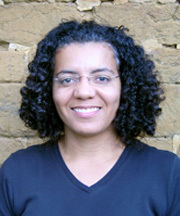
Many classic works of literature are rife with themes of mental and physical disability. Theres the iconic hunchback in Victor HugosNotre-Dame de Paris,disability asentertainmentinThe Elephant Man,the question of disability and stigma in Mary ShelleysFrankenstein,and the equation of physical disability and evil in ShakespearesRichard III.
As common as disability is in literature, few opportunities have existed to examine it from a cross-disciplinary, academic perspective.
This semester, University of Notre Dame students will have that chance in an Arts and Letters course titledDisability.
Taught by Essaka Joshua, professional specialist in the philosophy department, the course not only will explore the depiction of disability in literature and culture, but also will examine the politics of disability, legislation and human rights action – on par with issues of race, gender and sexual orientation.
I want to build on those topics, to add another other,said Joshua, previously an associate professor of English literature at the University of Birmingham in the United Kingdom.I want disability studies to be the place where students interested in other forms of discrimination need to go next.
As a member of the Disability Studies Society, Joshua has followed guidelines set forth by the membership regarding emerging programs in disabilities studies, which require a multidisciplinary approach thatencourages students, activists, teachers, artists, practitioners and researchers to engage the subject matter from various disciplinary perspectives.
The new course already is filled to capacity, drawing students from anthropology, psychology, English and American studies.
Studying writers who are disabled as well as those who are not, readings for the class include texts that deal with issues that are important to disabilities studies:Brave New World,Volpone,Richard III,andNotre-Dame de Paris,among others.
Discussions will span the disciplines to include theology, architecture, art, ethics, sociology, film and psychology, and will challenge the commonly held view that disability is an individual defect that can be remedied through medical intervention alone.
Additionally, students in the class can support their traditional learning with a service requirement at Logan Center, which provides programming for people with disabilities in the South Bend area.
The placement will be one to two hours per week, most likely at Logans Autism Center or the Adult Day Services program.
Integrating the service-learning experiences with the more traditional elements of the course will provide students with a more fully developed perspective of disabilities,Joshua said.
TopicID: 25947